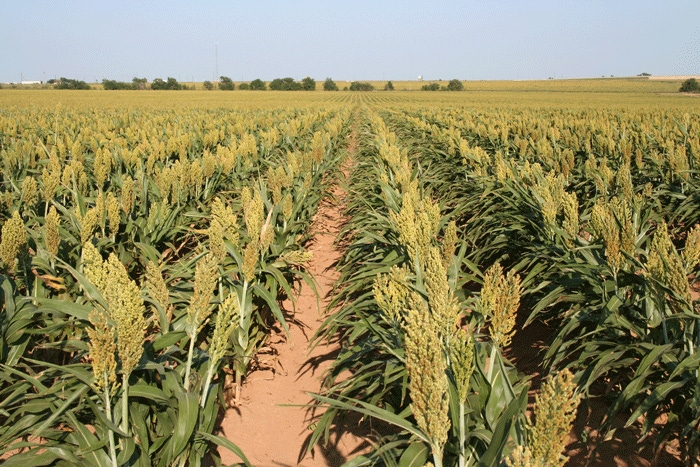
Grain sorghum producers may soon have some new bullets in their weed control arsenals with two sources of herbicide tolerance expected sometime around 2014.
“Experimental sorghum hybrids with herbicide resistance genes are being developed,” says Texas AgriLife Extension Weed Specialist Paul Baumann.
“We expect it will be at least 2014 before the technology is available,” Baumann said during the December Ag Technology Conference in Commerce, Texas. He said regulatory agencies as well as seed companies are testing the technology and getting it “into varieties that grow well.”
Resistance is not from genetic modifications but from traditional breeding programs.
Pioneer/Dupont and Kansas State University are cooperating on the release, which features two different types of herbicide resistance. One source will be tolerant to ALS herbicides; the other will be tolerant to the FOP herbicides.
“A lot of ALS herbicides are on the market and have been for a number of years,” Baumann said. These herbicides, including Beacon, Accent, Glean, Scepter and others, are enzyme-inhibiting products. “Farmers have a lot of options and more are being developed every year.”
ALS herbicides stop production of amino acids turning into protein.
Baumann said johnsongrass will be a key target for the new ALS technology. These products also may have activity on broadleaf weeds. “We know the technology works,” he said. “Tolerance is good; we have seen no evidence of crop damage but the sorghums (that currently have the technology) are a far cry from what we would plant in Northeast Texas.”
He said Accent will offer “knockdown power and with combinations will offer residual control.”
FOP herbicides include Assure II (quizalofop) and Fusilade (fluazifop). “These herbicides are very specific for grasses and will have no effect on broadleaf weeds,” Baumann said.
“They also have no effect on broadleaf crops so that could help with use. We expect to see a high degree of performance.”
Baumann said the FOP-tolerant grain sorghum will offer a good fit for growers with postemergence control of troublesome grasses. ‘It may provide a reasonable alternative to other in-season, grass-control products and control methods, such as Roundup applied with hooded sprayers. These are pretty remarkable developments for improved weed management and cropping systems. We can help manage Roundup-resistant weed species with different chemistries in the mix.”
Bauman said the ALS technology offers grain sorghum producers a lot of herbicide options. “These (resistant hybrids) will probably be the first developed. Available options will determine the best fit herbicide in a systems approach.”
The double-barrel approach of the ALS herbicides, with both grass and broadleaf activity, also make it a good new tool for farmers, Baumann said.
About the Author(s)
You May Also Like






